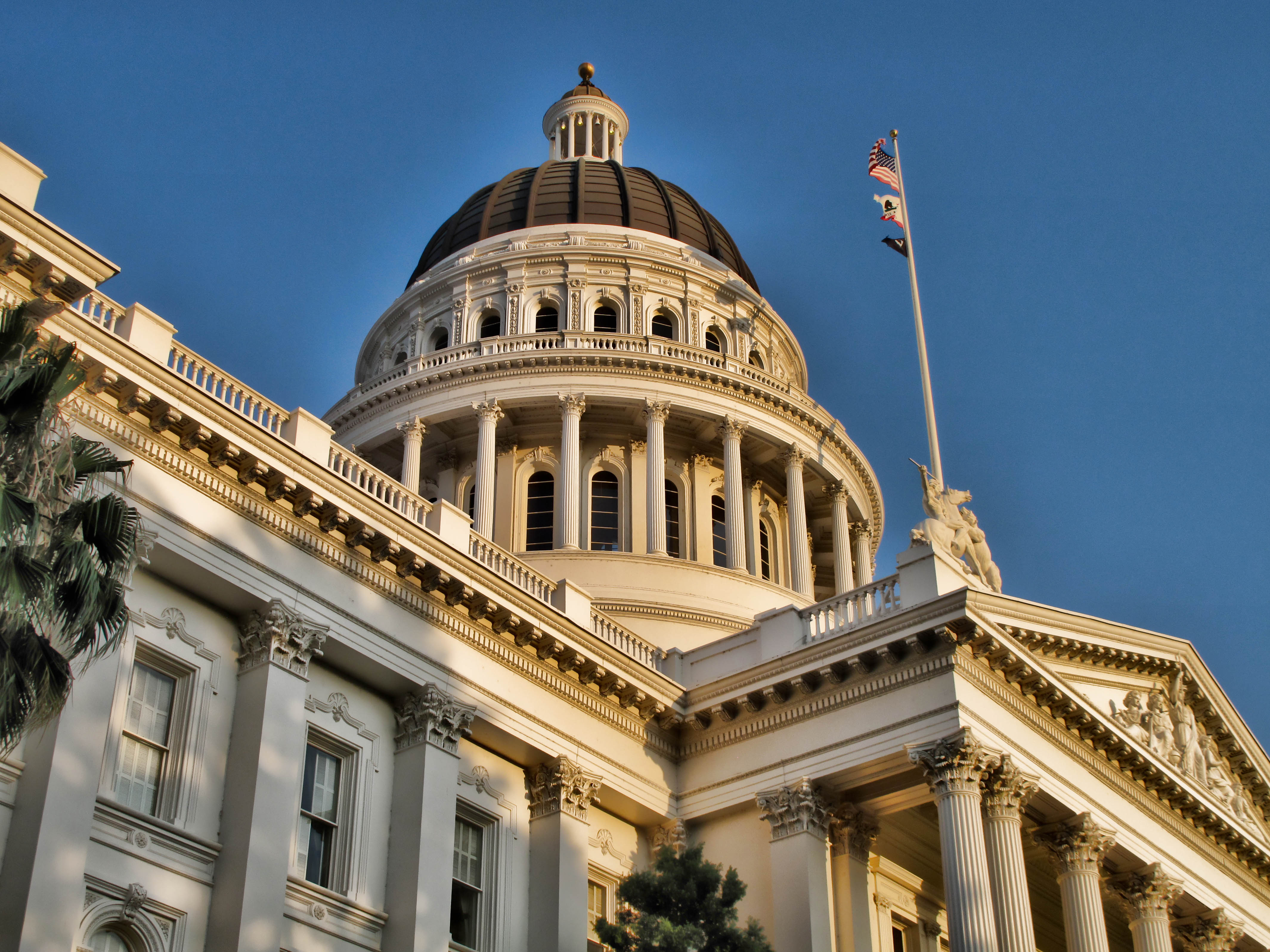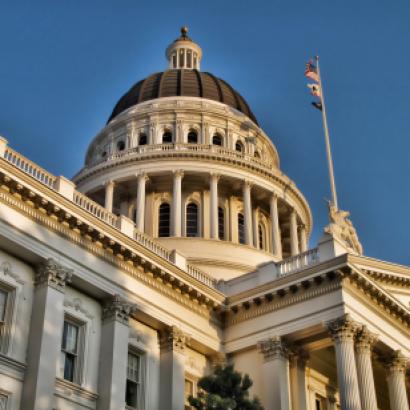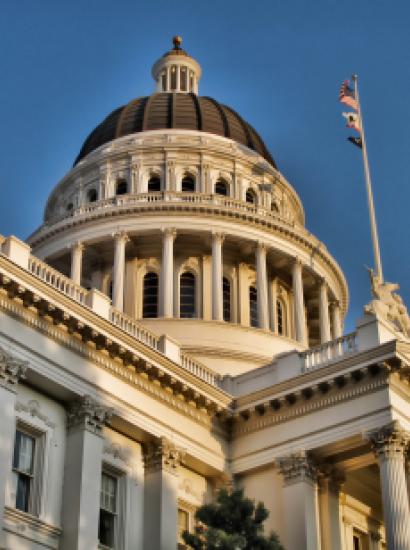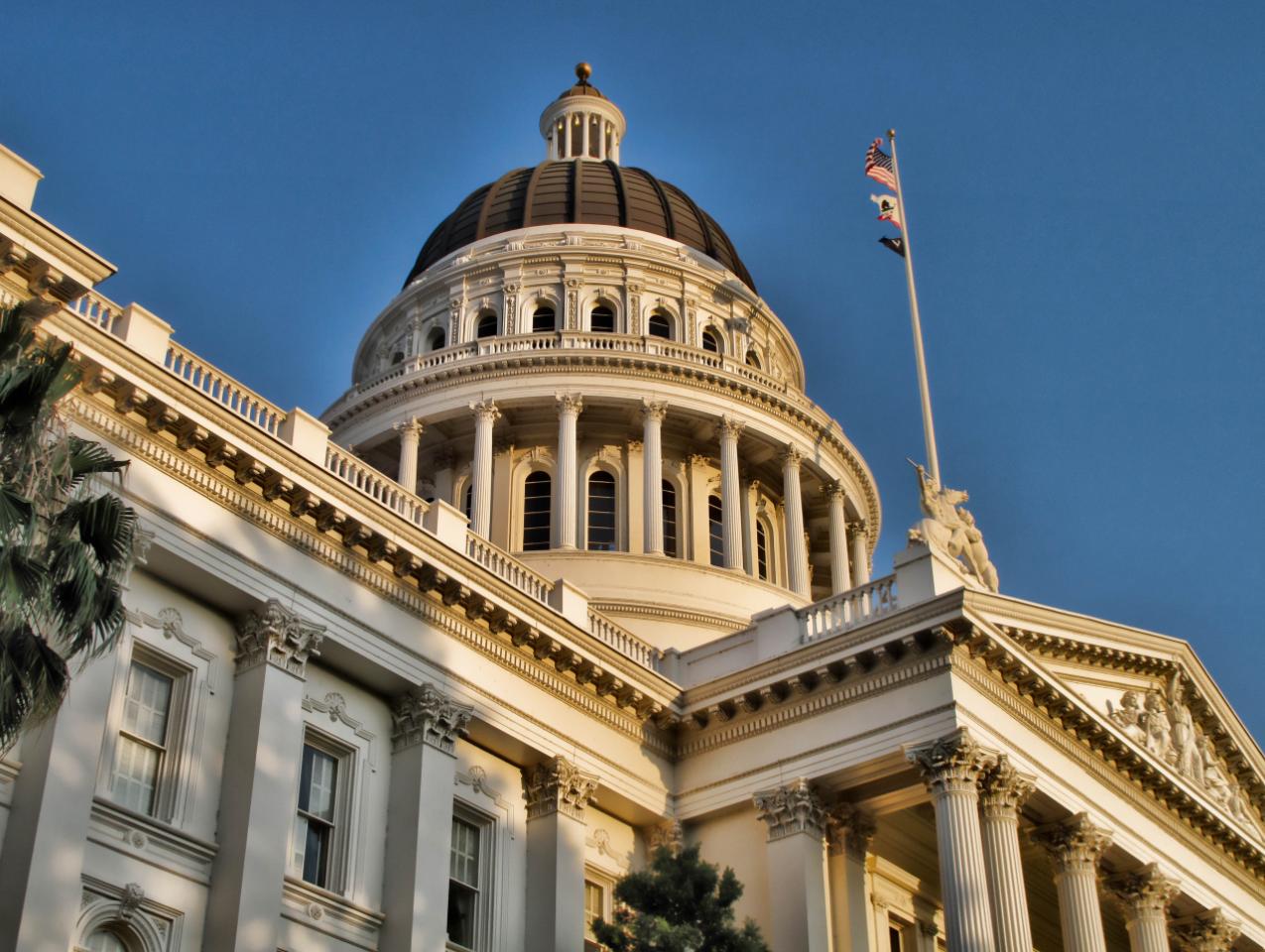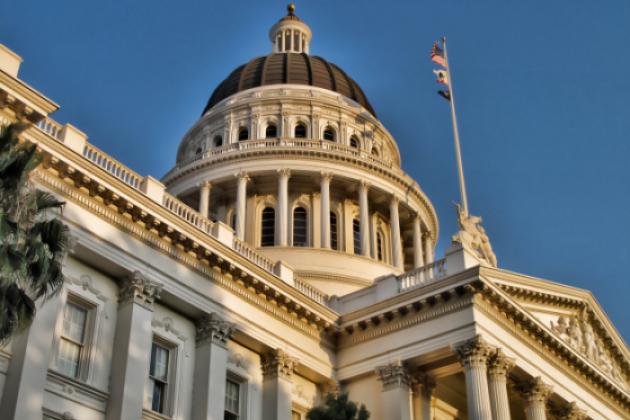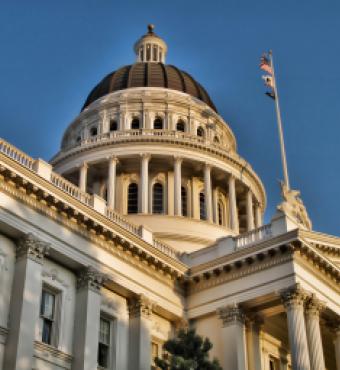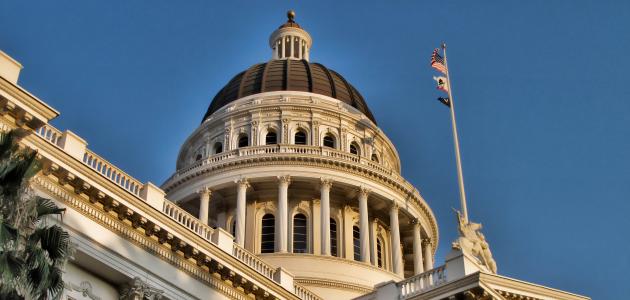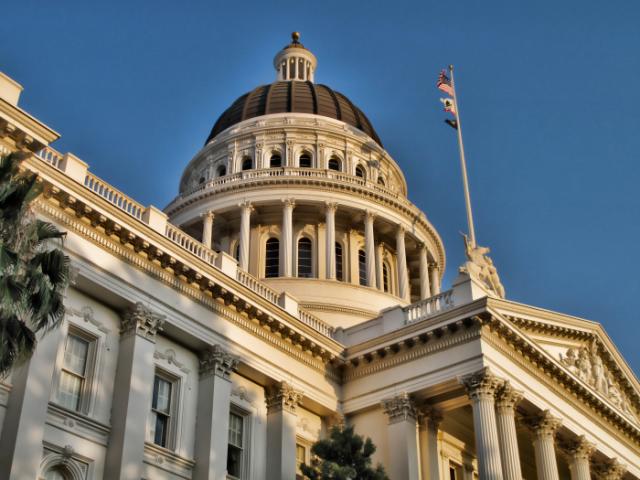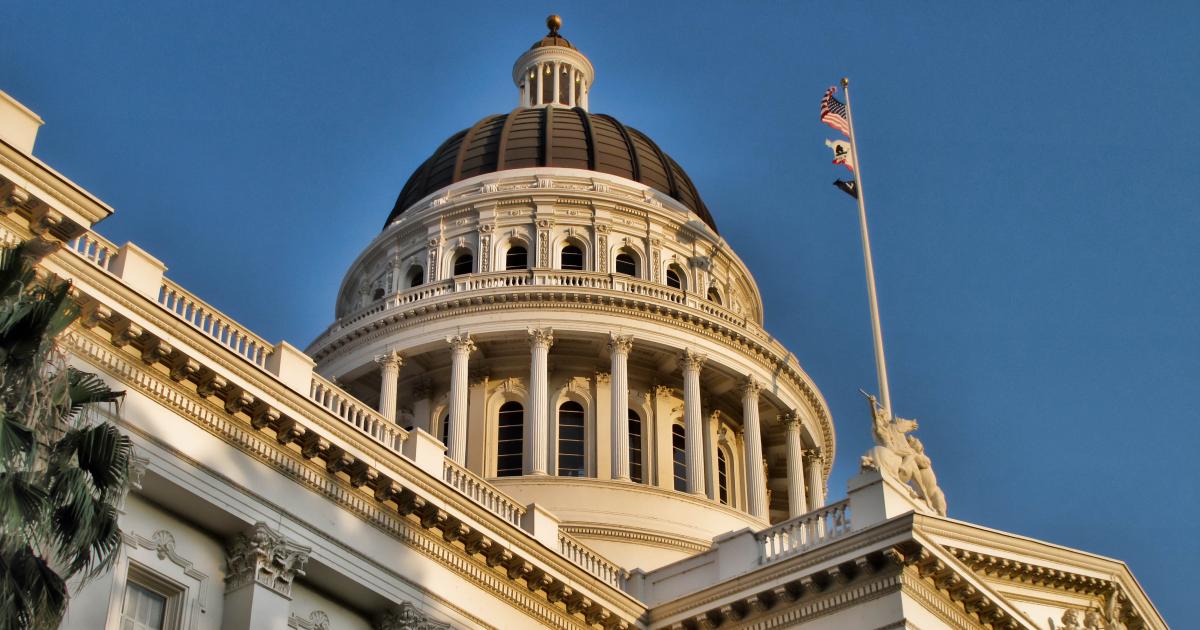- State & Local
- California
Though the date is nearly seven months away, mark the fourth day of next year on your calendar if you happen to be an aficionado of California politics.
Why January 4, 2026? Because it’s the 60th anniversary of Ronald Reagan’s announcing his candidacy for governor (here’s a video that, antiquated though it may appear, in black and white, is futuristic in one key regard: Reagan’s kickoff was actually a 30-minute television spot that appeared in multiple California markets).
Two things stand out about the 1966 governor’s race in California—explained insightfully, by the way, in Matthew Dallek’s The Right Moment, which chronicles how Reagan, a political neophyte known better for his acting career than his policy takes, would end up winning in a landslide.
First, Reagan was hardly the darling of the Golden State’s GOP when the contest began. George Christopher, a former Republican San Francisco mayor (that’s not a typo—there once was a viable GOP presence in that city), was the preferred choice among party moderates. (Reagan went on to swamp Christopher by a two-to-one margin in June’s Republican primary.)
Second, Reagan’s candidacy was a continuation of a unique path to political power in California: actors turning to politics.
Two years prior to Reagan’s victory, George Murphy, a Yale dropout and former Hollywood song-and-dance-man (among his partners was Shirley Temple), danced his way to victory in a US Senate contest versus the appointed Democratic incumbent Pierre Salinger—a twin-celebrity race, if you will, as Salinger’s claim to fame was serving as White House press secretary during John F. Kennedy’s fabled “Camelot” reign.
Sixty years later, California’s governor’s race reads like a bad restaurant review: zero stars. That’s “stars” as in celebrities, who dot the California landscape yet in today’s political landscape seem more content to stay on the sidelines rather than enter the game.
That changes somewhat if former vice president decides to run for governor next year—Kamala Harris being a “star” in the political more than the Hollywood sense given she’s her party’s most recent presidential nominee. Then again, her decision not to make a personal appearance at last weekend’s California Democratic convention in Anaheim adds to the intrigue of Harris’s next move.
Still, one wonders why Hollywood nobility shows little interest in succeeding a term-limited Gavin Newsom as California’s 41st governor. It’s not as if celebrities shy away from sharing their thoughts on Donald Trump.
Moreover, Hollywood has a vested interest in whomever Californians choose to lead the Golden State, as the exodus of on-location film and television production from Southern California is a policy matter that presently bedevils Newsom. (The governor, who claims California-based entertainment production is on “life support,” wants to give Hollywood more tax credits—not the easiest sell, as he’s also trying to coax the state legislature into spending cuts to shore up a $12 billion budget deficit).
Granted, an individual with show-biz heritage might decide to join the governor’s race. But it likely won’t be the same upheaval that California experienced when Arnold Schwarzenegger whimsically entered 2003’s gubernatorial recall election, drawing international interest in his two-month run.
In fact, Californians got a taste of that disparity in the more recent gubernatorial recall—the failed attempt in 2021 to remove Newsom from office. Among the nearly four dozen active candidates who campaigned to replace Newsom: Caitlyn Jenner. Despite her notoriety—as a transgender candidate, a celebrated Olympian, former patriarch of the Kardashian fame-seeking empire—and initially oversold by some as a game-changer for Republicans looking to rebuild and rebrand in America’s progressive blue states, Jenner mustered all of 1% of the recall vote and a 13th-place finish among the “replacement” candidates. (Schwarzenegger, on the other hand, led the way in 2003 with nearly 48.6% of the vote in a field of 135 candidates.)
But something else worked for Schwarzenegger in 2003 just as it did for Reagan in 1966: the concept of the “right moment” for first-time candidate.
An abbreviated campaign avoided Arnold the trouble of his conservative bona fides being questioned (what former eBay chief executive Meg Whitman endured when she ran to succeed Schwarzenegger in 2010).
Moreover, the recall election came at the right time for Schwarzenegger careerwise. By 2003 and in his late-50s, the former bodybuilder-turned-actor was approaching 10 years since the peak of his action-movie popularity. So, why not transition to politics?
Curiously, that may also explain why another Hollywood A-lister, film legend Warren Beatty, emerged as potential rival to Schwarzenegger early into Arnold’s gubernatorial reign.
Beatty was no stranger to politics, be it movies (1998’s Bulworth) or toying with the idea of a presidential run in 1992. But with Schwarzenegger in office, his attention turned to Sacramento. Beatty needled the “governator” at a commencement address in 2005, a year before Arnold ran for a full second term. Later in 2005, he addressed a gathering of the California Nurses Association (among Schwarzenegger’s most ardent critics at the time for reasons having to do with hospital staffing ratios) and looked very much like a prospective Democratic hopeful. (Speaking of Hollywood, also in attendance at that event: Beatty’s wife, actress Annette Bening; and Oscar-winner Sean Penn).
Perhaps Beatty was driven by policy concerns, calling Schwarzenegger’s support of certain ballot measures “union busting” and “fascist” in that convention speech. Or maybe he didn’t care for his fellow actor’s style, accusing Arnold of governing “by show, by spin, by cosmetics and photo-ops.” But again, the timing was hard to ignore: In 2005 and at age 68, Beatty was decades past his film zenith.
It's with that same consideration in mind—career arc—that two Hollywood A-listers come to mind when daydreaming about a more star-studded California’s governor’s race.
One of the two, George Clooney, has a high political profile, be it cohosting Hollywood presidential fundraisers or penning op-eds calling for the same president to step aside. Clooney also happens to turn 65 next year (Schwarzenegger was 63 when he left office in 2011) and isn’t the box-office force he once was. Then again, Clooney’s interest in politics runs more national than local. (Once asked if he’d considered running for office, Clooney quipped: “I would like to have a nice life.”)
A second possibility: Tom Hanks.
Like Kamala Harris, Hanks has ties to the San Francisco Bay Area, having spent the early portion of his life in the East Bay (if governor, perhaps he’d have fought harder than Newsom to keep the Athletics in Oakland). Hanks also turns 70 next year and has received only one Academy Award nomination since 2001.
There is, however, one Hollywood luminary who does reportedly harbor gubernatorial ambitions. The bad news for California: Matthew McConaughey, should he run, presumably would do so in his native Texas (and perhaps not until 2030 at the earliest).
A McConaughey candidacy would offer something current California politics lacks: contrition. Speaking last summer to a gathering of governors, here’s what he said about Hollywood’s political instincts: “My industry has to watch its tongue out of the gate, because it’s coming from the left. We have to open that conversation with our opening statements and not invalidate a moderate or conservative at the gate, which we’re guilty of to an extent.”
Speaking of guilt, perhaps it’s not Hollywood’s fault that California politics is experiencing a dearth of celebrity interest. Blame it instead on one reason why A-listers pass on an offer: a bad script. In this case, it’s the fear of becoming the sequel to a California governor blessed with leading-man looks but hamstrung by a series of chronic policy woes (homelessness and housing, for openers) seemingly beyond his skill set. Moreover, that governor is hardly receiving rave reviews from his viewing audience.
Ask yourself: Would you want to play the lead in that production?







